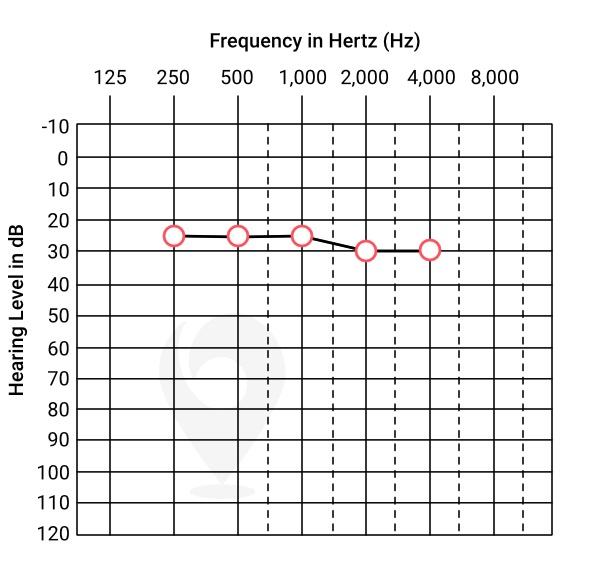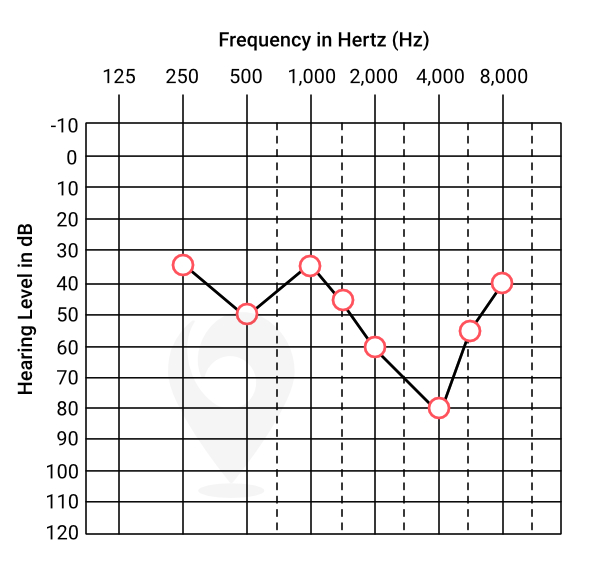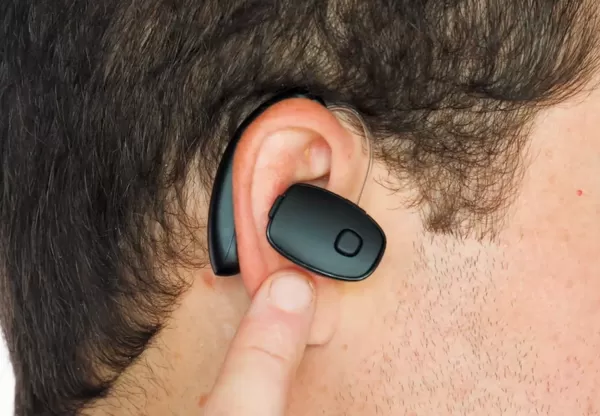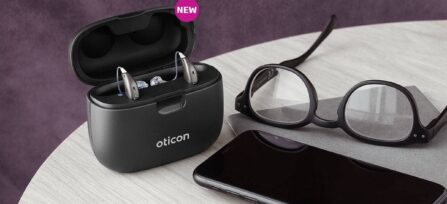Hearing Aids vs. Hearing Amplifiers
Which should you buy?
If you’ve noticed your hearing isn’t what it used to be, one of your first questions may be-
“Should I buy hearing aids or an amplifier?”
Those who sell hearing aids will almost always say hearing aids are the better choice.
At the same time, advertisements for amplifiers will make claims that they’re just as good as hearing aids for a fraction of the cost.
In this post we’ll separate fact from fiction and explain the differences between hearing aids and hearing amplifiers, to help you get a handle on which might be better for you.
The difference between hearing aids and hearing amplifiers
According to the U.S. Food and Drug Administration:
Hearing aid means any wearable instrument or device designed for, offered for the purpose of, or represented as aiding persons with or compensating for, impaired hearing.
FDA.gov
PSAP (Personal Sound Amplification Product) means any wearable electronic product that is not intended to compensate for impaired hearing but rather is intended for non-hearing impaired consumers to amplify sounds in the environment for a number of reasons, such as for recreational activities.
FDA.gov
In layman’s terms:
Hearing aids are more sophisticated devices, more expensive, and usually involve face-to-face local care by a licensed hearing care provider.
Amplifiers, also commonly called PSAPs (Personal Sound Amplification Products), are the most basic form of amplification, usually the least expensive, and can be purchased directly by a consumer without consultation from a licensed hearing provider.
As a result, PSAPs usually do not involve the care, support, or guidance of a local hearing care provider.
If you take the above definitions provided by the FDA at face value, it’s pretty clear-
If you have hearing loss, you should use hearing aids, and if you don’t have hearing loss, you can use a PSAP.
However, regardless of the definition of PSAPs and their intended uses, many people who actually are hearing impaired are using PSAPs as a substitute for hearing aids.
Why?
Primarily, cost, and the fact that hearing amplifiers are much better than they used to be.
The truth about hearing amplifiers
If you ask most hearing aid retailers about amplifiers, their response is likely to be-
“Amplifiers amplify all sound, while hearing aids selectively amplify sounds.”
While historically this has been true, it is no longer always the case.
The truth about modern hearing amplifiers is some of them are much better than most hearing aid retailers even know or would care to admit.
At the same time, advertisements for many amplifiers make some pretty outlandish claims that are not supported by any data.
This is because the FDA does not consider PSAPs to be medical devices, so they are not subject to FDA requirements, testing, and regulations like those imposed on hearing aids.
As a result, claims made about PSAPs are largely unproven.
So when you’re seeing advertisements, the adage “don’t believe the hype” often applies.
At the same time, if you hear amplifiers being bashed by hearing aid retailers, you may want to take that advice with a grain of salt.
The fact is, some modern amplifiers are almost as good as hearing aids, and sometimes it does make sense to buy an amplifier instead of a hearing aid.
3 reasons you should buy a hearing amplifier
You should consider a hearing amplifier instead of a hearing aid if:
- You have mild-to-moderate, relatively flat hearing loss
- Your hearing loss isn't bad enough to justify the expense of hearing aids
- You primarily want to hear better around the home, in quiet listening environments
1. You have mild-to-moderate, relatively flat hearing loss.
Amplifiers may be a good option for you if your audiogram (hearing test results), look similar to the audiogram below.

The above audiogram indicates a mild hearing loss, which is about the same across all frequencies.
What this essentially means is, roughly the same amount of gain (volume) needs to be applied at each frequency- and that is the perfect job for an amplifier.
Amplifiers are not able to amplify sound as selectively, or as discretely at each frequency, in the way that hearing aids are.
Compare the audiogram above to the one below, which shows a more advanced hearing loss, with different amounts of hearing loss at each frequency.

For this type of hearing loss, a hearing aid will be the better choice, because hearing aids are more powerful, and because a hearing care provider can independently adjust the volume provided at each frequency band.
The animation below helps explain this concept.

When the frequencies can be independently adjusted by a hearing care provider, the result is a much more precisely-fit hearing aid and a better sound quality.
For a more advanced understanding of how hearing aids are able to amplify sound discretely, here is some recommended reading about hearing aid channels and bands.
2. Your hearing loss isn’t bad enough to justify the expense of hearing aids.
Hearing aids can easily cost thousands of dollars.
If your hearing loss hasn’t progressed to the point that you can justify that expense, it makes sense to buy an amplifier.
An amplifier can in a sense, “hold you over” for a while, until in the unfortunate event, your hearing loss gets to the point that you need hearing aids.
The good news is, if you have a mild hearing loss, a good amplifier may provide just as much help as a hearing aid would at this early stage of hearing loss.
3. You primarily want to hear better around the home, in quiet, one-on-one listening environments.
Modern hearing aids have advanced directional microphones and sophisticated algorithms to process sound in noisy environments and make it easier to separate speech from background noise.
Although some amplifiers can improve speech understanding in noisy environments, they don’t do this as well as hearing aids, and a study has shown that some PSAPs may even make it harder to hear in noise.
If you (mostly) need help hearing around the home, and don’t have a particularly hard time hearing in noise, an amplifier is a good option.
3 reasons you should buy a hearing aid
- Hearing aids can provide more power
- Hearing aids are more comfortable and discreet
- Hearing aids have more sophisticated features and can be personalized
1. Hearing aids can provide more power
A recent study has shown that users with more significant hearing loss get more benefit from hearing aids, as compared to amplifiers, as hearing aids are able to provide more power (volume) than amplifiers.
Amplifiers don’t provide nearly as much power as hearing aids, for 2 reasons:
- If they did, users would run the risk of permanently damaging their hearing by turning them up too loud.
- Because amplifiers can’t be custom molded, regardless of how loud they are turned up, a lot of the amplification “leaks” out of the ear.
If you have a mild hearing loss, this may not be a big deal, but if you have a moderate-to-severe hearing loss, missing out on that amplification is a very big deal.
2. Hearing aids are more comfortable and discreet
This piece from Wirecutter is probably the most comprehensive article on the net about PSAPs, and here’s what their reviewers had to say about the comfort and discretion of amplifiers-
“Although our testers found the top-performing PSAPs generally helpful, they agreed that each model they tested had serious flaws, such as a hopelessly unfashionable look, or the feel of a pair of earplugs.”
-Wirecutter
Any hearing device you intend to wear for more than a few hours a day should be comfortable.
You know how your ears can sometimes get very sore after wearing headphones too long?
The same thing can happen with amplifiers, because they aren’t custom-fitted or sized to the wearer’s ears.
As a result, they’re also more likely to fall out, and produce feedback, which is an annoying high-pitched whistling sound that you, (and others) can hear.
Finally, amplifiers will rarely fit as discreetly as custom-fitted hearing aids, which in many cases can be so discreet no one will even notice them in a wearer’s ear.

Professionally fitted hearing aids are designed to be worn all day with no discomfort, and if you wish, can fit very discreetly.
3. Hearing aids have more sophisticated features & can be personalized
The single biggest benefit of hearing aids as compared to amplifiers, is the fact that hearing aids can be precisely customized to an individual’s unique hearing loss.
This granular adjustment of sound provides for a much more personalized listening experience- as opposed to amplifiers, which in many cases, simply make all sounds louder.
While some amplifiers do allow the wearer to make discrete adjustments across the frequency spectrum, they don’t come close to providing the kind of control or flexibility that a hearing provider has in programming hearing aids.
And though some amplifiers offer features like background noise reduction and feedback cancellation, it’s important to remember that the efficacy of these features is often unproven, as amplifiers are not FDA regulated devices and are not subject to the same kind of scrutiny as hearing aids.
Aside from just overall improved sound quality, hearing aids have more features and functionality such as more robust Bluetooth capabilities, and much better rechargeable battery life.
Tips for buying a hearing amplifier
Follow the tips below and you’re much more likely to find an amplifier worth it’s cost, that’ll get you the hearing improvement you’re seeking.
Before buying an amplifier, get a hearing test by a licensed hearing provider
When you buy a hearing aid, The FDA has made this a compulsory first step, and for good reasons.
Getting a hearing test and examination of your ears ensures that there is no underlying and treatable medical condition contributing to your hearing loss.
It’s also a good idea to ask the hearing provider if they have any amplifier recommendations that may meet your needs, as using the amplifiers could lead to permanent damage.
Avoid the cheapest devices, but also avoid spending too much
Consumer Reports and Johns Hopkins both advise against buying the cheapest devices available, as they can actually do more harm than good.
A general rule of thumb is to avoid devices that are less than about $150.
Devices below that price point are most often the ones making claims that are too good to be true, and offer little evidence supporting those claims.
At the same time, avoid spending more than around $1000 for a set of amplifiers. At that price point, it starts to make more sense to just buy a set of hearing aids.
For around $1000, you may be able to buy an entry level or refurbished set from a local hearing provider, which will perform better, be more discreet, and more comfortable.
Look for devices that offer specifications
If you can find the following specifications or features & functionalities in the product description, you’ve probably found a good amplifier:
Bluetooth connectivity: This is usually a good way to tell if a device is high-end. Good Bluetooth amplifiers include an app to allow for the personalization of various settings, and some even include a hearing test.
Noise reduction via directional microphones: Noise reduction features are designed to help you hear better in noisy environments like restaurants, by dampening extraneous background noises so you can focus more on speech in front of you.
Feedback cancellation: Feedback, which is an annoying whistling sound, is a constant problem for many of the cheapest amplifiers. Good amplifiers will include feedback suppression technology, which allows an amplifier to be used at its maximum volume level, without producing that annoying screeching sound.
Frequency response specifications: This specification will tell you the range of frequencies the amplifier is capable of amplifying. Look for devices that can amplify above 2000Hz, as this is the frequency range of sounds like “sh”, “th”, “f”, and “s”- all of which help make speech clear.
The bottom line
Modern amplifiers have come a long way, and you shouldn’t assume that they’re all just cheaply made products that don’t offer any personalization.
At the same time, it’d be a mistake to have too high of hopes for amplifiers, as they are not FDA regulated devices, and many of the claims made in advertisements are not substantiated.
Once you’ve been evaluated by a healthcare professional and cleared to use amplifiers, if you have a mild-to-moderate hearing loss, amplifiers can be a great and inexpensive solution.
Before buying any amplifier, check for certain specifications to ensure it’s a reputable product, and always understand your return privileges with the store or website.
Hearing aids are often the best long term solution, but in most cases, most hearing healthcare providers would agree that a good amplifier is better than nothing.






